このブログでは、すい臓がんを完治するまでの、知識と経験を共有していきます
【Journey 03】Find a hospital for treatment – act quickly and without regret

Hello, I’m Chico.
In the previous article below

I told you how I was diagnosed with cancer, was hospitalized, and underwent an “ultrasonic endoscopic biopsy” for a definitive diagnosis.
Pancreatic cancer – it was an unfamiliar term for me.
When I looked up what kind of disease it was, all I could find was information that made me want to cover my ears.
Today, I will talk from here.
Be Strategic
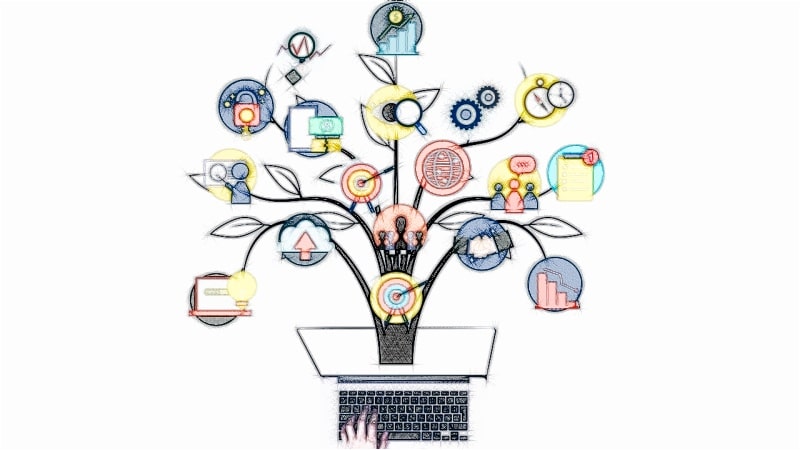
I was diagnosed with pancreatic cancer, but at the time I knew very little about the disease.
Even so, from the next day onwards, I will be admitted to the university hospital that made the diagnosis, and I will have an examination called an endoscopic ultrasound biopsy.
Need to act quickly

In such a situation and no matter how unfamiliar the disease is, I understood that it was not the time to take it easy.
This is because I got information that pancreatic cancer progresses quickly and has a low survival rate.
At this point, I became ready for battle.
A hospital for surviving intractable diseases
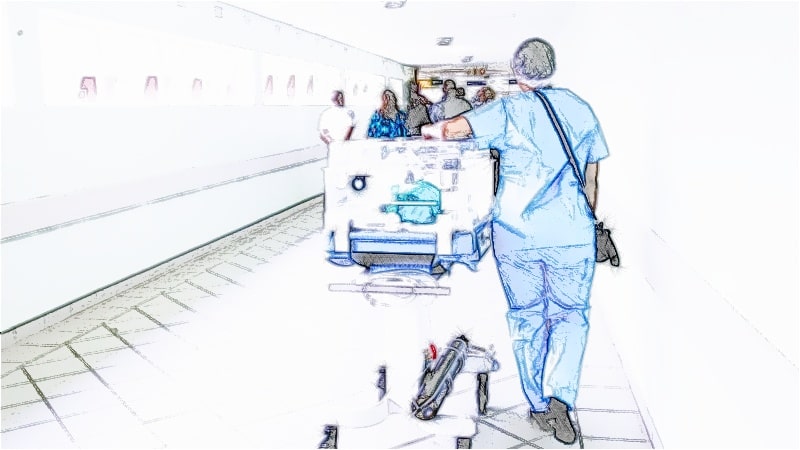
In order to survive the incurable disease “pancreatic cancer”,
I thought to need to choose a hospital that:
- have the most up-to-date and specialized medical care available
- with specialized knowledge and experienced doctors
In other words, I thought that we should consider not only this university hospital,
which first visited me with suspicion of “autoimmune pancreatitis” and diagnosed cancer,
but also all hospitals that place more emphasis on “cancer treatment”.
I thought I should reconsider the hospital to ask for further treatment.
Find a hospital – quickly and without regret

Therefore, I decided to use my free time during the hospital stay
for investigating the illness in more detail and setting an eye for the hospital.
 チコ
チコOkay, let’s refresh my minds and move on to:
1. understanding the disease
2. confirming my feelings
3. moving on to the next action
- Understand and accept my illness
- Think about what I want to do and why I want to do it
- Take action
Knowledge | Understanding pancreatic cancer


Having had little awareness of the pancreas until now, I began by researching what “pancreatic cancer” was.



Oh, Okay. Because of this low survival rate, it’s called the “King of Cancer”…
Progressing fast…
And in my case, it’s no sure if surgery is possible..



So, what is my survival rate…?
There was no mention of metastasis. But I was told that the cancer was wrapped around my arteries.
So that means, it is stage 3 according to the document below.
Stage 1: Localized within the pancreas, no lymph node metastasis
Stage 2: Part of the tumor extends outside the pancreas
Stage 3: Involves the celiac artery or superior mesenteric artery
Stage 4: Distant metastasis to liver, lung, peritoneum, periaortic lymph nodes, etc.1期:膵内に限局、リンパ節転移なし
出典:膵臓がんの進行度(ステージ)とは|日本肝胆膵外科学会
2期:腫瘍の一部が膵外に出る
3期:腹腔動脈または上腸間膜動脈に浸潤
4期:肝臓、肺、腹膜、大動脈周囲リンパ節などへの遠隔転移



So, statistics show that the 5-year survival rate is 5.9%…
Wow, seriously? that’s very low!
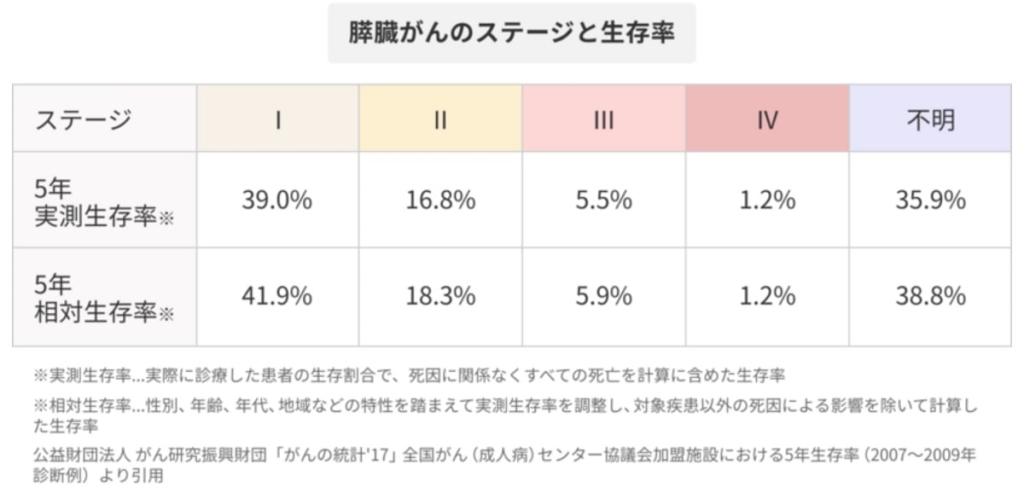




It’s very low, but…
・・・・・



But it’s not zero.



Ok then, my first step will be to make the best choice to remain in this 5.9%.
Feelings | What do I want to do?


I don’t want to regret it.



I just don’t want to regret later.
I want to choose the best hospital for me



I want to choose the best hospital possible
I’m sure every hospital will have the same standard of care.
However, in the final stage, which may be the difference between life and death, what kind of treatment to propose should change depending on the capabilities and policies of each hospital.
The number of cases, accumulated medical data, the existence of specialist doctors and staff, and their skills and experience differ from hospital to hospital…
In other words, depending on which hospital you choose, you will be divided whether you will be satisfied with the results in the end.
I want to start treatment before this disease progresses





But due to the nature of my illness, I don’t have much time, and have to hurry.
However, pancreatic cancer progresses very quickly, and there is no time to act slowly.
・・・
What I thought about when choosing a hospital:
- I want to make a choice that I will not regret (hope)
- There is no time to leisurely examine hospitals (constraints)
候補となる病院のリストアップ


In order to organize my thoughts, I briefly summarized the candidate hospitals in Excel.
Entering notes on the number of cases, clinical trials, the latest technology, the expertise and experience of doctors and staff, and other information I care about. Keeping a score…
Oh, accessibility is also important to me.
In view of the long treatment, work, and life, I would like to go to a hospital in Tokyo that is close to my home if possible.
Considering the burden on my family, I would like a place where it is easy to commute by train alone.
Three factors for choosing a hospital that we won’t regret:
- Capabilities of the hospital/department – number of cases, clinical trials, latest technology, etc.
- Experience/skills of the doctor in charge
- Ease of access
Action|Inquiry to narrow down hospitals for treatment


While organizing the information in this way, I finally narrowed down the list to three hospitals.
From here, I had to proceed with the following, taking into consideration the “time constraints” that are important for pancreatic cancer patients.
- Obtain a second opinion
- Confirm of how long it would take to get treatment
- Exchange referrals and making an appointment for the first visit



I have to move quickly…
As mentioned earlier, in the case of fast-progressing pancreatic cancer, there is no time to leisurely examine the choice of treatment.
Second opinion
First of all, I wanted to go to the candidate hospital for a second opinion.
In order not to regret any outcome, I needed a “process” of examining and choosing “by myself”.
However, considering the progression of pancreatic cancer, I did not have that much time.
Differences in time to start of treatment by each hospital


When I looked into it, I found out that the number of waiting days until the start of treatment is different for each hospital.
Example of guideline until the start of treatment (in case of Tokyo suburban hospitals)



I want to reach the start of treatment in the shortest possible time.
Just by searching the Internet, you can get some information such as the number of days waiting for treatment, therapeutical experiences, and the latest treatment initiatives.
However, I had to contact them directly to confirm the schedule for an appointment of the first visit.
I talked to each hospital by phone and finally decided on one hospital.
A letter of reference and an first appointment for a hospital specializing in cancer
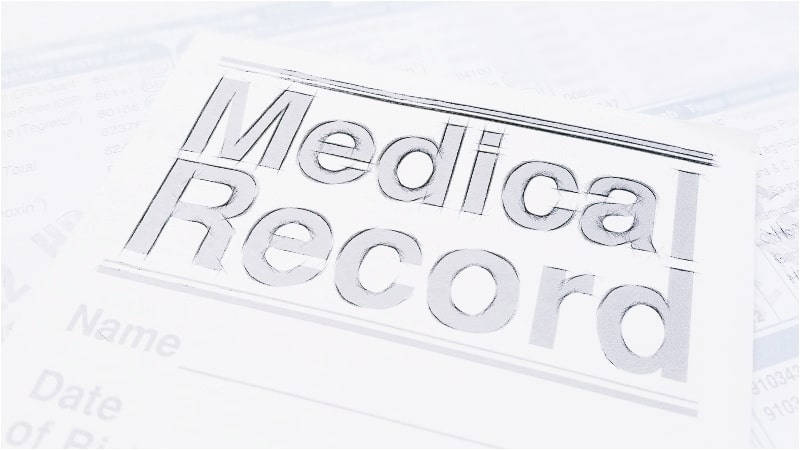

Normally, in Japan, when I have been hospitalized in University Hospital A and want to transfer to another hospital B (a cancer hospital that was nominated as a result of consideration, this time)
It would be required to take the following steps:
Hospital A: Receive cytology results
Hospital A: Talk with the doctor about the test results
Hospital A: Tell them that I want a second opinion at Hospital B
Hospital A: Have a referral letter written to Hospital B
Hospital B: Make an appointment at Hospital B with the referral letter
Hospital B: Visit Hospital B as a new patient
But if I follow these many steps, the cancer could progress.



Doing this one by one would take too much time…
Here I was remembering what happened in 2018.
I visited several clinics due to my poor physical condition, but doctors said, “It’s not a big deal.”
Following their advice, I couldn’t get a detailed examination right away.
And, possibly, the cancer may have progressed as a result.
Such self-reflection came to my mind.





I don’t want to regret it anymore
・・・



Let me proceed efficiently
With that in mind, I skipped a few steps and quickly made an appointment for the first visit at Hospital B (a cancer hospital).
I think I was able to shorten the time to start treatment by about two weeks.
I know it was only two weeks, but it also was a precious time for me at the time.
Later, I told the doctor at hospital A my sincere gratitude for having been diagnosed with cancer in the first place, and my apology for having to follow an irregular procedure.
The doctor warmly replied, “Don’t worry, there is no problem. Please do your best.” With these warm words, he wrote a letter of referral.
Consultation at the cancer hospital


I had been considering a hospital to receive treatment in the future, but finally, on February 25, 2019, my first visit to a cancer hospital was decided.
Flow from the first visit to the start of treatment
I will put a memo from my first visit to the treatment at this hospital.
At a reception of first visit, I had to fill in a lot of documents and was drenched in sweat
I became very nervous because it’s a specialized hospital where only cancer patients gather
Hospitalized for ultrasound endoscopic puncture aspiration *1
This was performed at first university hospital, but no cancer cells found, so I had to try again
Consult with a doctor on treatment plan based on test results
Started anticancer agent Folfilinox. Initial hospitalization required
During this hospitalization, reexamination of the previous endoscopic fine needle aspiration method *1 was also performed
Clinical trial Nivolumab initiated
A test in which a thin needle is inserted into the tumor to collect tumor cells and perform tissue diagnosis.
It has been reported that 5-10% of patients diagnosed with pancreatic cancer by imaging tests and operated on do not actually have pancreatic cancer, so a pathological diagnosis is necessary.
腫瘍に対して細い針を刺し、腫瘍細胞を回収し組織診断を行う検査。
画像検査で膵がんと診断されて手術した患者さんの5-10%では実際に膵がんではないとの報告もあり、病理診断が必要
参考:愛知県がんセンター病院
What they said to me at my first visit
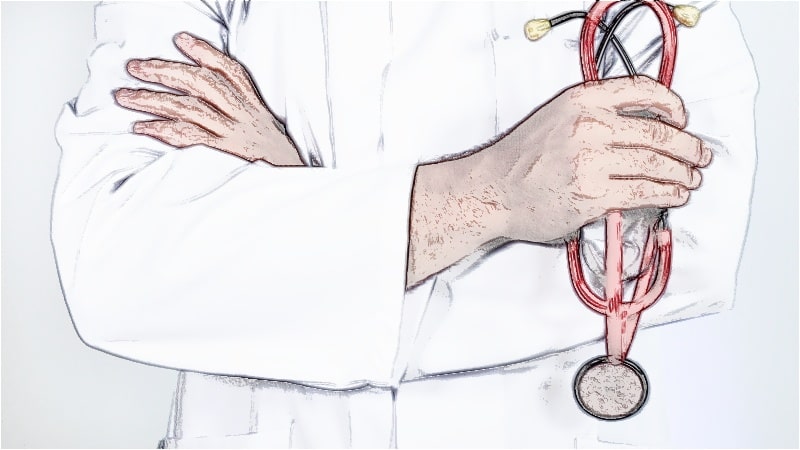

I finally made it to my first visit to a hospital specializing in cancer treatment.
I was nervous, and entered the doctor’s office with praying that the diagnosis at the university hospital would be wrong!
Then, in the room, the doctor told me
Our diagnosis is the same as the result of the university hospital
Dr. K, later attending physician, Hepatobiliary and Pancreatic Physician, said quietly.
Lessons learned during this period – Mindfulness and Concentration


During this time, many things happened, such as the sudden diagnosis of pancreatic cancer, hospitalization, and pathological examinations.
Looking back, I think I did my best as a first step to overcome this hardship in the midst of turmoil.
◇ ◇ ◇
What do I want to do, what should I do to achieve this, and what restrictions do I have on the way to my goal?
With these things in mind, I was able to find the best hospital for me and was able to get to my first visit in the shortest amount of time.
When I thought about the factors that allowed me to do my best even under strong stress, I think it was mindfulness and concentration.
◇ ◇ ◇
I’ve been trying to be conscious of mindfulness from before.
However, I tried to focus on “noticing this moment” rather than just meditating.
The power to “grasp the present moment” and “notice” in every moment under any circumstances
どんな状況下でも、一瞬一瞬において、「いま、この瞬間をとらえる」力であり、「気づく」力
出典:マインドフルネス (ハーバード・ビジネス・レビュー[EIシリーズ]) 単行本
And as a result of this state of mindfulness, I feel like I’ve been able to focus all my energies on what I needed to do this time.
Mindfulness has been shown to have the following benefits:
- Improve concentration
- Clear grasp of things and improvement of judgment
- Cultivate inner peace, reduce mental and emotional strain, and find creative answers
参考:Mindfulness for People Who Are Too Busy to Meditate(by Maria Gonzalez)
Conclusion
This time, I talked about things from searching for a hospital to the first visit to a cancer hospital.
Next, I will talk about diagnosis and treatment at a cancer hospital.







Comments